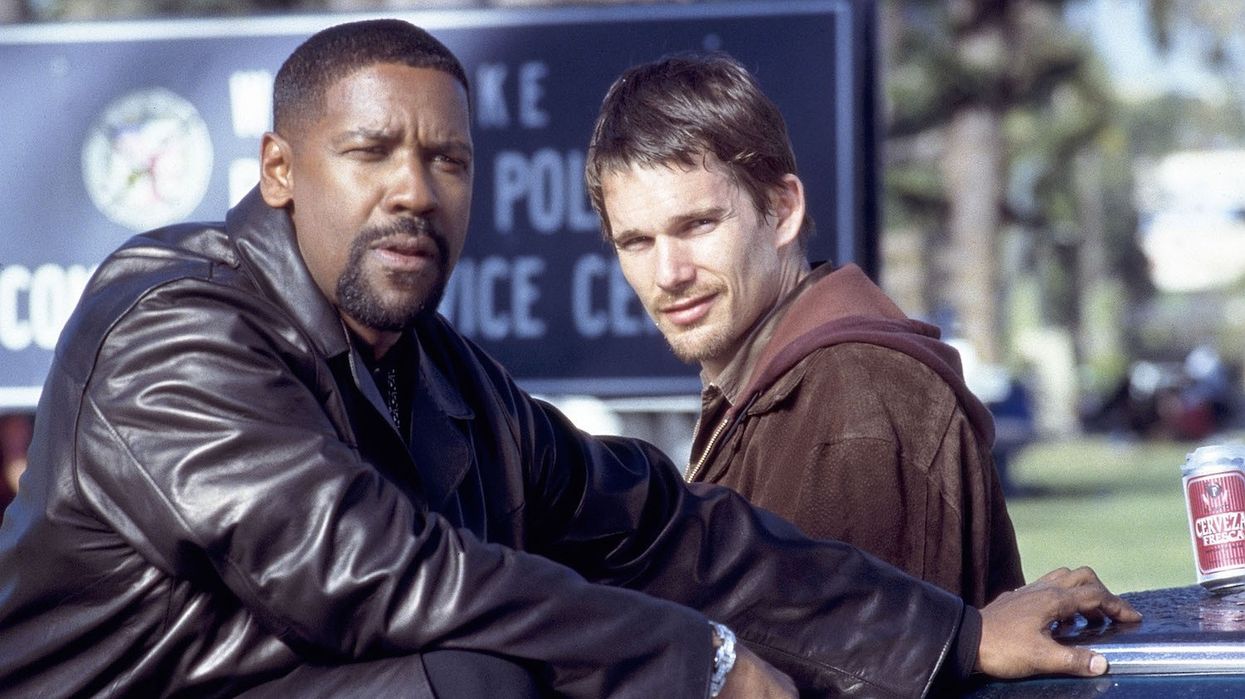Why Are Villains with a God Complex So Compelling to Writers?
King Kong ain't got anything on Alonzo Harris.

Every story needs a great villain to showcase the greatness of the hero. A good villain challenges the hero’s morality and goals, putting the hero’s motives and the villain’s motives in juxtaposition.
It can be easy to spot the villain, or antagonist, of the story, but many stories are discovering new ways to create a righteous villain who audiences can empathize with and understand. Sometimes, we find ourselves nodding our heads, telling ourselves, “They kind of have a point.” These villains eventually become memorable, living well past their respective moments in the spotlight.
Writing a memorable villain can be a challenge, and that is when we dissect what makes one of our favorite villains of all time iconic and appealing despite their antagonistic role—Alonzo Harris (Denzel Washington) in Training Day.
Nerdstalgic breaks down the unique moral code and imposing physical presence that makes Alonzo Harris a perfect villain to learn from when writing your memorable villain. You can watch the entire video below.
The villain of Training Day
Training Day follows two LAPD narcotics officers, Alonzo Harris and Jake Hoyt (Ethan Hawke), over 24 hours in the neighborhoods of Westlake, Echo Park, and South Central Los Angeles. The film explores the murky corruption and decay within the LAPD’s C.R.A.S.H. (Community Resources Against Street Hoodlums) which had 140 civil lawsuits brought against it in 1997 thanks to statements made by Officer Raphael Perez. These civil lawsuits detailed the unprovoked shootings, beatings, and planting of evidence made by officers in the program.
Inspired by these events of corruption, screenwriter David Ayer wanted to explore what would make someone reach these extreme measures of corruption in broad daylight in their pursuit of justice. When writing about Alonzo, the veteran narcotics officer who acts as a mentor to Jake, Ayer asked himself to what extent can someone justify their actions, good or bad, in service of power and justice.
Alonzo isn’t a straightforward villain. Instead, he is a righteous villain with a God complex that is put into a position of mentoring a young and ambitious soon-to-be detective. Alonzo is supposed to be the light that guides Jake down the right path to better serve the community, but Alonzo essentially pushes against that narrative trope entirely.
The dark guardian is an unexpected role for a villain to take. What the audience expects is thrown out the window, and we are left with a morally ambiguous character whom we don’t know if we can trust. This desire to trust is largely thanks to the performance and off-screen persona of Denzel Washington. Up to that point, Washington’s career tended toward heroic lead roles that were performed with charisma and charm that made audiences root for him.
Using Washington’s on-screen charm to the film’s advantage, the audience expected Alonzo to do the right thing or, at least, distinguish right from wrong.

Unfortunately for the audience, Alonzo is someone who views himself as a righteous villain who is willing to do the ultimate evil to bring forth just results. Washington’s ability to evoke empathy from the audience in moments of absolute corruption showcases the character’s understanding of himself. He is a villain who thinks he is the hero, but deep down knows he is a bad guy.
Alonzo’s God complex shapes who the character is. He never questions how far he should go to protect the innocent. Instead, he justifies every single action and cannot see the corruption within him.
Ayer completes Alonzo’s story arc beautifully by further establishing the relentlessness of Alonzo’s perception of himself. Even in the face of death, Alonzo does not accept defeat and sees the faults in his ways. It’s the God complex on display as he stands there, face-to-face with death—he cannot see what he has done wrong to meet this unfortunate end.
A similar example is Thanos (Josh Brolin) in Avengers: Endgameas he explains his actions without remorse or regret right before Thor (Chris Hemsworth) chops off his head. Both characters believe in the actions they took to make their ideas a reality until the end, even though the way they achieved their goals was deeply flawed and questionable.
When writing a villain, it’s important to recognize that the villain does not realize they are the bad guy, and if they do, they believe their actions are justified. To them, the ends justify the means. Your villain doesn’t have to be purely evil. Great villains are morally ambiguous and play with and against the audience’s expectations of what is right or wrong. The villain’s unpredictability, charisma, and anger that drive them to act the way they do can be captivating to watch as it is horrifying to see unfold before our eyes.
Source: Nerdstalgic













